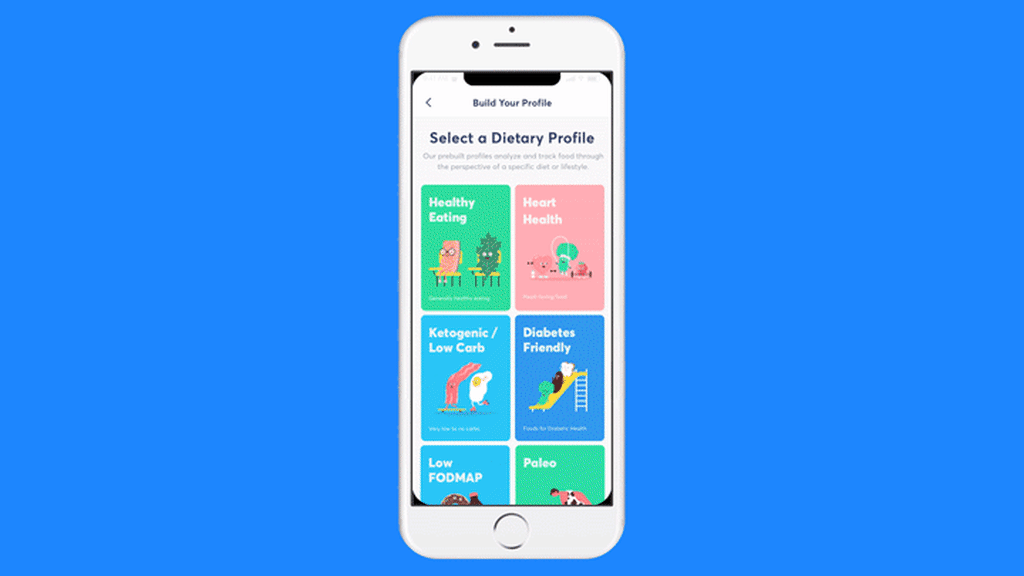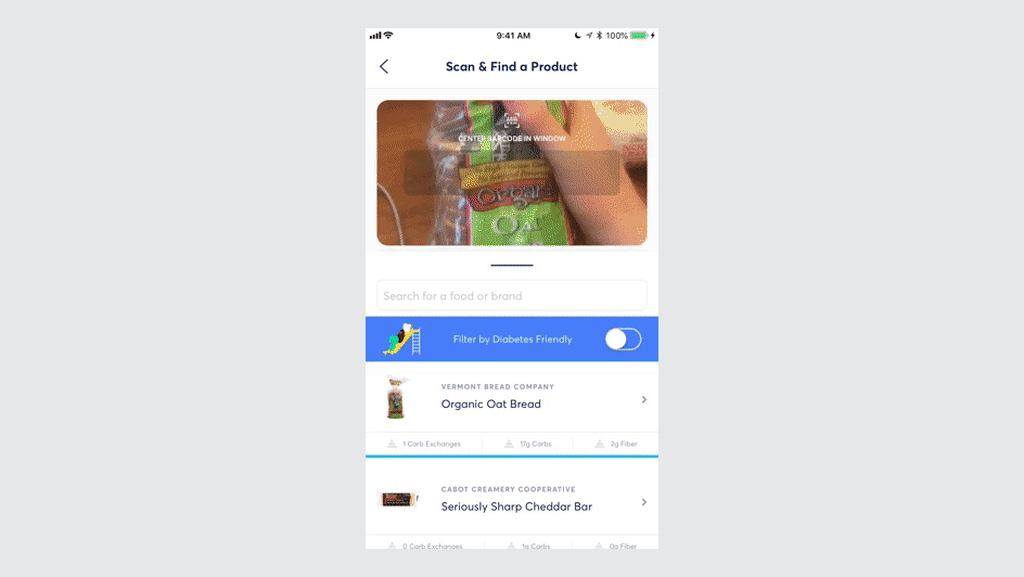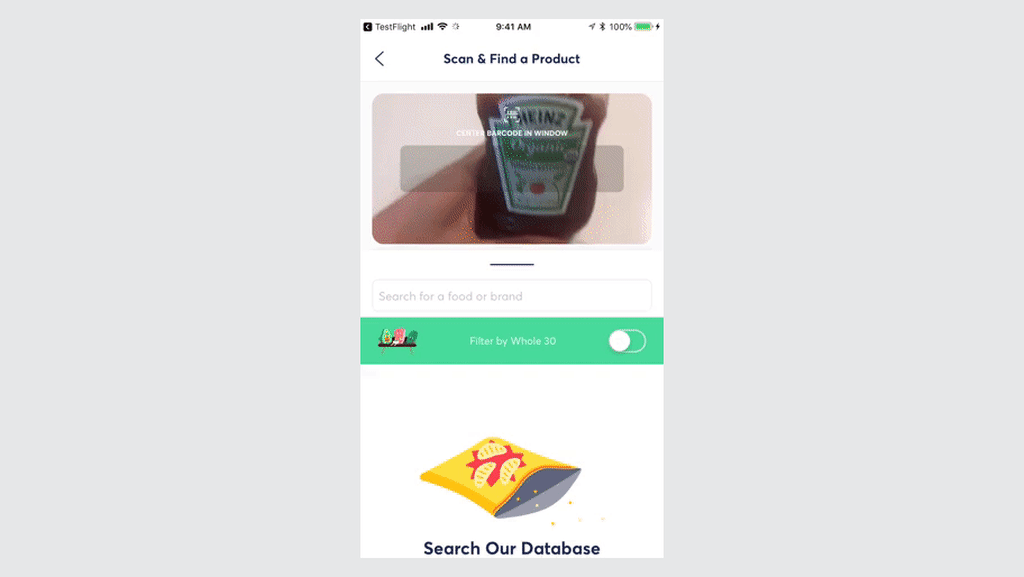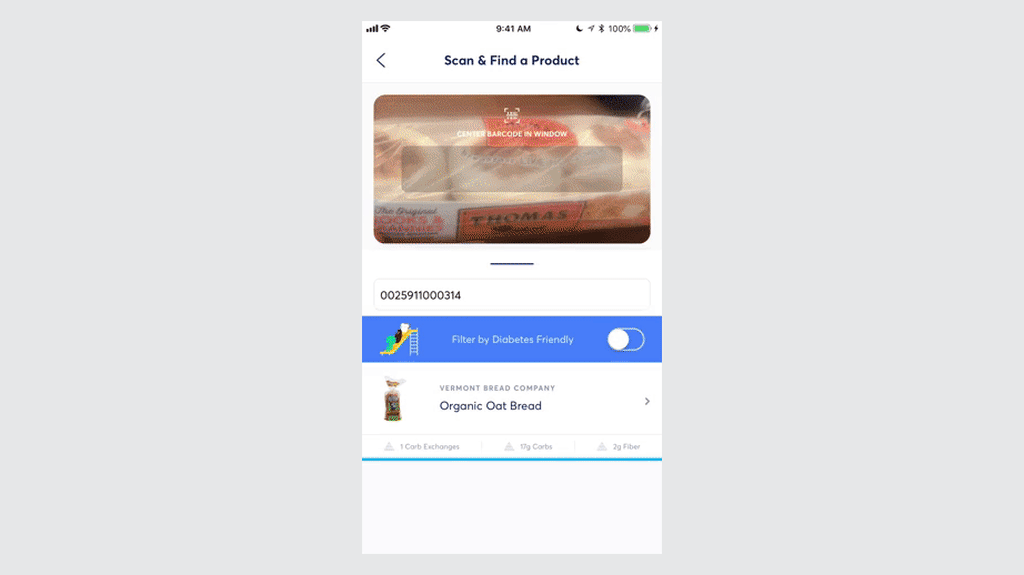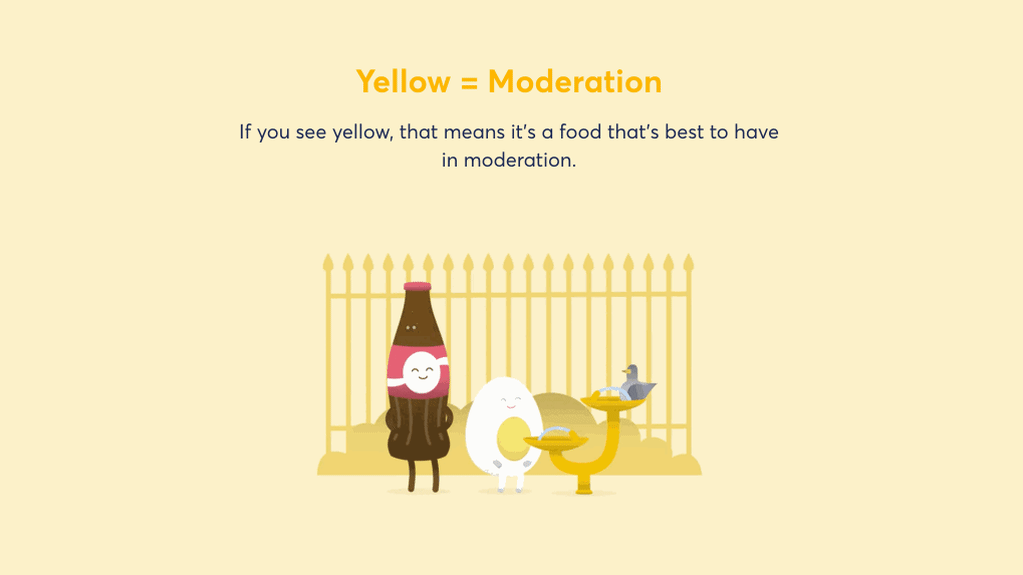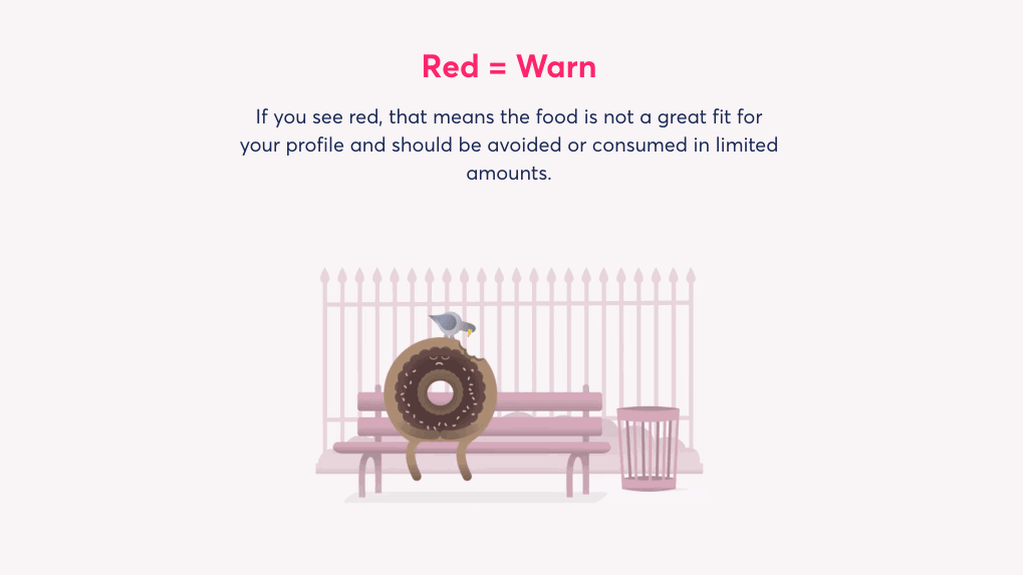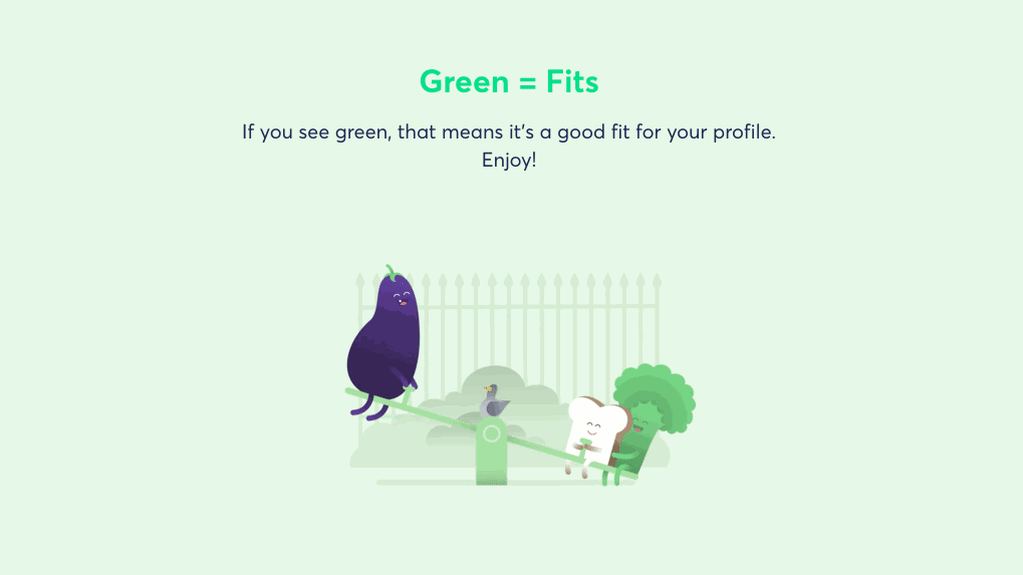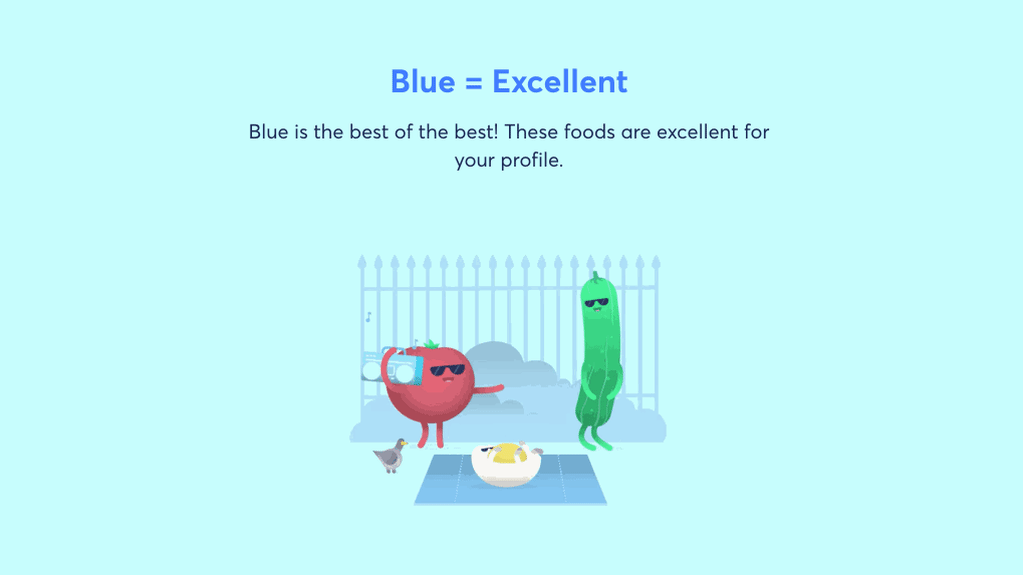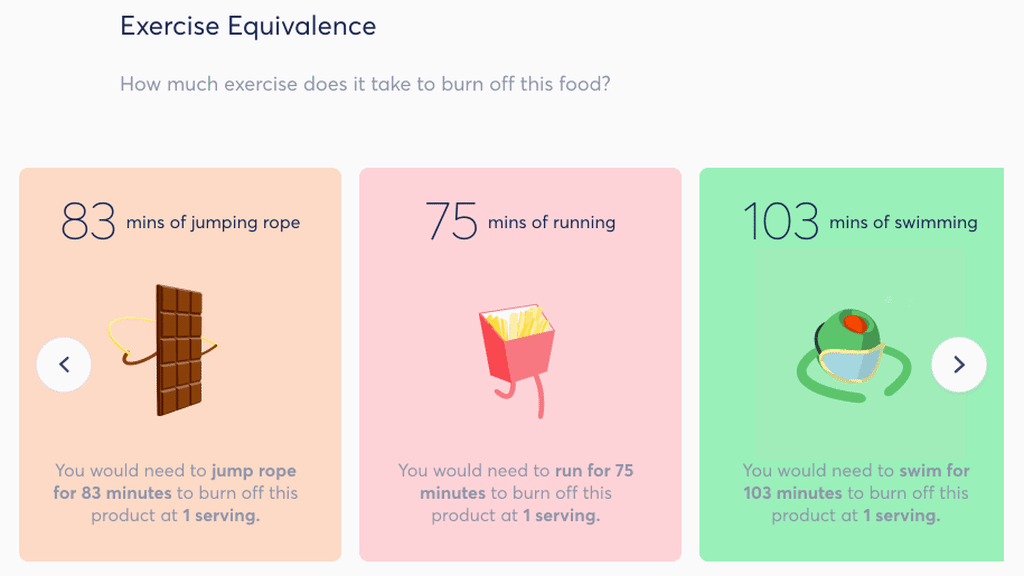If you’re walking down the aisle of a grocery store and you’re in the middle of a Whole 30 diet–or you’re vegan, or diabetic, or allergic to a particular ingredient, or eating paleo–you can use a new app to scan the back of a package and get a personalized nutrition label that focuses specifically on the ingredients and nutritional information you care about.
If you’re diabetic, for example, the app, called Pinto, will see if a product has added sugars and how much fiber it has compared to carbs. Someone trying to manage heart health can see if food is high in sodium or saturated fat. Someone with irritable bowel syndrome will get a warning if food is high in lactose or fructose, which can make their symptoms worse. If you’re on a keto diet, it will focus on net carbs, fat, protein, and sodium.
“What we saw in the space was there’s a tremendous amount of data and information that’s potentially out there about food and about nutrition, but the way that data is sourced and the way that it gets to consumers isn’t really from the lens of what a consumer today needs,” says cofounder and CEO Sam Slover, who first began developing an early version of the platform as a graduate student at NYU.
The detailed database that the app needed to work didn’t exist, so the startup built it from scratch, working directly with food manufacturers and grocery stores like Whole Foods, Kroger, and Campbells. Some of the information you can get in the app, like added sugars, isn’t shown on standard nutrition labels. And current labels don’t account for the increasingly divergent way that consumers eat. The startup built a data science engine that takes all of the raw nutritional data and classifies it against specific consumer needs. “Essentially what we’re able to do is, given any user and their diet, we pull out the exact information you need to know about a product,” says Slover. On the other side of the commercial equation, the company plans to monetize this data, by selling data–both on the nutritional data of their products and customer preferences–back to its corporate partners.
[Image: courtesy Pinto]After adding data for a massive amount of products–around 100,000 items, or the top-selling 85% of food products in the United States–the team can now quickly add new types of diets to the platform. It takes about a week, Slover says, to build a new diet, and another week to test it. Underway now is an analysis for pregnant women, which can build personalized nutrition labels by trimester.
The app can also be used to search for a list of products, such as all of the yogurts that are high in protein and lactose-free, or all of the keto-compliant ice creams. It can also be used to track meals. If you take a photo of your lunch, the app uses AI to recognize what you’re eating and estimates the nutrition, tracking that not just against calories but against the needs of your specific diet (though it’s been notoriously hard for other startups to make this work effectively). Everything is presented in a playful way; a GIF of a chocolate bar jumping rope and a running box of fries illustrates how long you’d need to exercise to work off a particular snack. Colors are used as a simple signal of what to eat: Red marks foods to avoid, and green marks foods that are a good fit.
It’s a reflection of where the food industry is headed, Slover says: Consumers are looking for healthier food, they’re making choices based on the “food tribe” they identify with, and the industry is moving digital. “The data that we’re producing about food in terms of how it powers personalization, and getting the right product in front of the right consumer, is one of the harder and more interesting challenges in grocery, in nutrition, and food right now,” he says.
Recognize your company's culture of innovation by applying to this year's Best Workplaces for Innovators Awards before the extended deadline, April 12.

